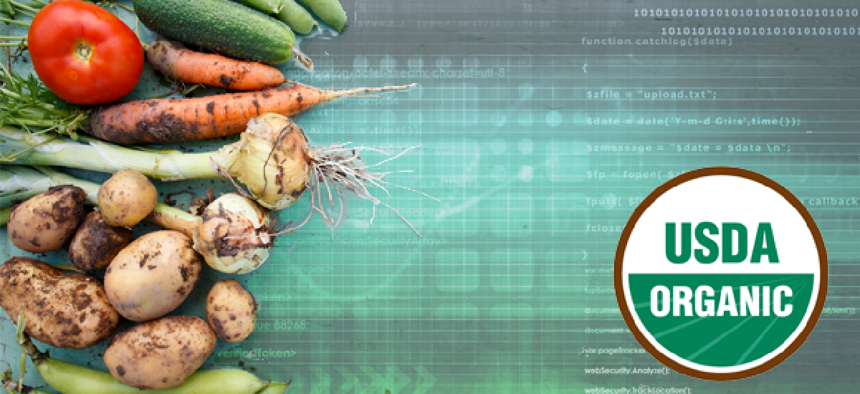USDA seeks database to maintain ‘organic seal’


Connecting state and local government leaders
The Agriculture Department wants to set up an electronic organic integrity database to maintain information on operations that use the organic seal, by which the department ensures public trust of its organic programs.
Agricultural products using the USDA organic seal or the word “organic” must meet all requirements in the Agriculture Department’s organic regulations. Currently, approximately 30,000 organic farms and processing facilities around the world are certified to the USDA organic standards. As the nation’s interest in organic products grows, so has the administrative burden.
The USDA’s National Organic Program (NOP), which oversees the issuance of the “organic seal,” wants to set up an organic integrity database that will help it ensure producers and consumers trust USDA’s commitment to maintaining organic programs.
NOP currently keeps an annually updated list of certified USDA organic operations on its website. However, the list can become out-of-date when new operations become certified or surrender their certification during the year.
Now the NOP says it wants to develop an interactive, web-based database of certified organic operations containing reliable, high-quality information for the organic industry and public. With it, the program hopes to establish network connections with certifiers that will “reduce their reporting burden while providing more accurate and timely data.”
Each year, NOP reviews and consolidates data from individual Excel sheets submitted by certifying agents. “We continue to improve data quality and structure ... but we are limited by process and format,” according to an USDA overview of its organic program.
Instead, “a modernized certified organic management system will serve as a significant operational centerpiece for the NOP staff and stakeholders,” according to a request for information issued by the program.
Other features of the organic database sought by the NOP include:
- Geocoding, which would allow the visualization of certified operation information in geographic-based views.
- An audit trail so that certifier and NOP users can see who made the most recent change to a record.
- Historical records management, a “snapshot in time” capability with specific snapshots at the end of fiscal year and end of the calendar year.
- Ability for NOP's accredited certifying agents to provide updates about their certified operators in various ways, including manually, in batch uploads or with APIs and web services.
USA says the database will help it deter fraud by providing real time information about operations licensed to use the USDA organic seal. It will also help “reduce hundreds of phone calls from buyers, consumers and other certifiers to NOP … to confirm an operator’s current certification status,” according to the program.
The organic database will help the NOP increase supply chain transparency, boost market visibility for organic operations and deter fraud, according to the program.




